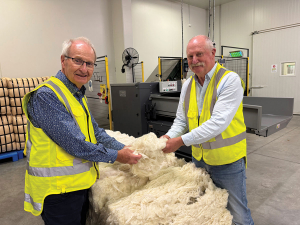Closure of its Queensland operation comes five months after Ravensdown completed sales of its businesses in Western Australia and South Australia.
“We told shareholders at the last annual meeting that it was a make or break year for the Queensland business and the hard reality is that it’s the latter,” Ravensdown chief executive Greg Campbell said.
“We need to take action now and put the Australian experience behind us. When the next financial year starts from June 1, 2014, there will be no Australian fertiliser trading losses affecting our New Zealand result.”
Ravensdown Fertiliser Australia was set up in 2009 after sugarcane growers invited the cooperative to start supplying them. The business plan was based on 100,000t/year sales but cyclones, flooding and depressed world prices for sugar meant tonnage never reached that. Last year 70,000t sold.
The ABC reported sugarcane growers to be “gutted by the shock closure of New Zealand fertiliser cooperative Ravensdown’s Queensland operations.”
Canegrowers chief executive Brendan Stewart told ABC Ravensdown’s entry into the Queensland market had saved growers $20-30m/year.
He acknowledged sales had fallen short of expectations, but said Ravensdown’s exit was premature.
“Had they committed to the full five year agreement, which was due to expire in May next year, we would have been able to reach that [100,000t/year] target and make it profitable.”
About 37% of Canegrowers’ members were buying fertiliser from Ravensdown, the ABC reported.
Campbell told the ABC that “in the main” Ravensdown had good support from Canegrowers. “But probably not all of them or enough of them… In addition to that it was quite a fragmented market.”
In its announcement Ravensdown highlighted its renewed focus on New Zealand operations, investing in advanced nutrient management training, infrastructure such as new loaders in stores, and technology such as Smart Maps to provide a visual audit trail for a farm’s nutrient status.
“We’re seeing strong demand from a buoyant New Zealand sector and have good availability of products like superphosphate, DAP and urea in our stores,” said Campbell.
















